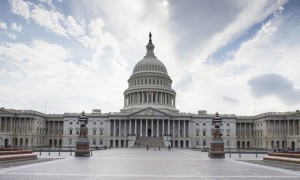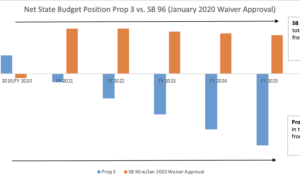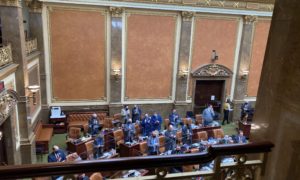The core of my guiding principles regarding the various levels of government is laid out in the Tenth Amendment to the U.S. Constitution which explains that powers not specifically delegated to the federal government are “reserved to the states, respectively, or to the people.” To me this means that government decisions are best made at the level that is closest to those who will be affected, and as a general rule, this means not by the federal government.
1. The Constitution – I believe that the Constitution of the United States of America is the guiding document in determining the proper roles of all government. This inspired document delineates areas of responsibility that belong to the federal government and those that belong to the states and effectively to individuals. If all elected officials were more conscious of the original intent of the framers of that document, we would have better policy. Part of that awareness is reflected in the willingness of state legislatures to assert their rights under the Constitution and stand up to the federal government. I believe that state legislatures have the right and obligation to insist on the division of powers embodied in the Tenth Amendment.
2. Abuse of the Commerce Clause – Congress has in many cases taken on roles and made decisions that should have been left to the states. Perhaps the most dangerous abuse of power has been the expansion of powers under the “commerce clause” of the Constitution. The framers recognized that economic growth could be hampered by inconsistent state policies regarding trade or exchange. This clause allows the federal government to regulate trade between the states. While this view of federal role regarding regulation of business worked well through the first hundred years, as the Supreme Court noted in 2005, Congress “ushered in a new era of federal regulation under the commerce power” in the late 19th Century.
3. The Federal Income Tax – Another change that has upset the balance between the federal and state government was the creation of the federal income tax with the passage of the sixteenth amendment in 1913. Prior to this amendment, Congress primarily relied on income from excise taxes and customs duties. While Congress had used the income tax from time to time prior to 1913, the passage of this amendment removed any requirement that taxes collected be proportional to the population of the states and effectively institutionalized the opportunity for Congress to reach directly into the pocket of every American.
For the past hundred years, this new institution has fueled the federal interest in creating and funding far too many programs that should have properly been left to the states, including direct wealth redistribution through tax policy. Besides being bad economic policy (a discussion left to a future note on economic development and taxation), this unbridled opportunity to fund federal programs coupled with an expanded view of the commerce clause has been the source of an incredible extension of the federal government beyond where it should ever have been.
Notes: Here are a couple of historical notes on the sixteenth amendment: 1) The concept of a federal income tax that led to the sixteenth amendment was put forward and pushed by the Socialist Labor Party (1887), the Populist Party (1892), and the Democratic Party (1908). 2) Utah is one of a handful of states that rejected this amendment.



